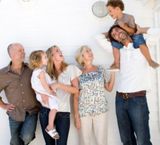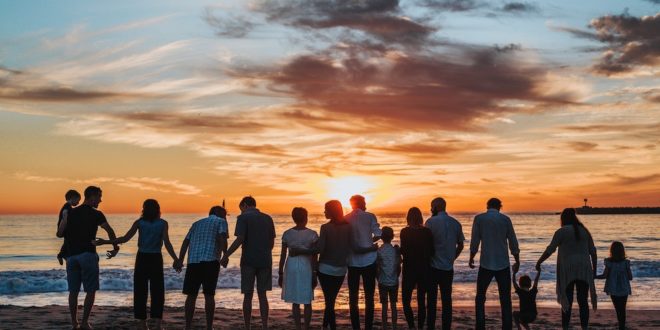According to some studies, Italian parents like to live with their grown children far more than most people do in the rest of western society. Grown children successfully living with their parents, and those parents making a welcoming home for their children, where everyone is encouraged to be an adult and appreciated for what they have to offer, is an art form. Most of us in New Zealand have run away from doing this, believing that it was unhealthy, both for the parents and for the children, to permit young adults to stay at home beyond a certain age.
 We tend to believe there is something pathological about grown sons who choose to stay at home with their mothers. While it is true these men do take longer to establish homes of their own, we also know many men take longer to mature emotionally, than women, and letting them have a few more years to grow up might not be such a bad thing. Personally, I found each of my children were far more capable of carrying on an adult conversation when they were in their mid-thirties, than they had been when they were younger. It takes that long for hormones to settle down and experience to accumulate.
We tend to believe there is something pathological about grown sons who choose to stay at home with their mothers. While it is true these men do take longer to establish homes of their own, we also know many men take longer to mature emotionally, than women, and letting them have a few more years to grow up might not be such a bad thing. Personally, I found each of my children were far more capable of carrying on an adult conversation when they were in their mid-thirties, than they had been when they were younger. It takes that long for hormones to settle down and experience to accumulate.
However, many of us as parents, and as mothers especially, do a dance with our sons that is part longing to be able to enjoy them as adults, and part rejection, as we believe unless we pull out of their lives, they will not be able to form healthy relationships with their wives. The result would appear to be generations of men who are incapable of talking about their feelings to anyone, men who live with rage embedded in their souls that cannot always be controlled, and cannot always be suppressed.
This writer firmly believes that living in extended family situations can be healthier, emotionally, for everyone involved, including the children who are born into those families. And, families survive better when they help each other, sharing their resources with one another.
But, in order to do this successfully, you have to believe that the benefits of an extended family are far greater than the benefits of living alone. It is also interesting to note that very little has been written about this sort of family that is complementary to it. Women at home alone with their small children, day-after-day, can develop pathologic symptoms akin to those experienced by explorers in the far north, who had to remain for months at a time in lonely outposts, seeing no one, with only their records to keep and their machines to tend. We call it cabin fever. Let’s face it; young mothers with cabin fever are not much fun for their children.
Young mothers who enter the work force, having to leave their children at home with babysitters or in day-care centres are often denounced for depriving their children of their loving presence, and themselves for missing their children growing up. Yet, in our world, it is nearly impossible for one income to keep a family fed, clothed and housed. Both parents must work and depend on the kindness of others to care for their children.
A loving extended family can solve some of these problems, though for all of us, learning how to change gears and value all the members of our family enough that we are willing to help support them in whatever ways we can, is perhaps the hardest thing to learn. But, it may be one of the most necessary things we learn, so we can all survive through the twenty-first century as healthy and loving human beings.
By Genevieve Fosa









Join the Discussion
Type out your comment here:
You must be logged in to post a comment.